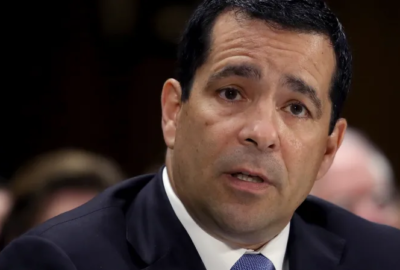To listen to the Federal Newscast on your phone or mobile device, subscribe in PodcastOne or Apple Podcasts. The best listening experience on desktop can be found using Chrome, Firefox or Safari.
- The Department of Homeland Security added more clarity to how agencies can secure remote workers. The Cybersecurity and Infrastructure Agency’s updated telework use case builds on the interim guidance from April by extending the definition of remote users to mobile devices, including those under the BYOD or Bring Your Own Device type. At the same time, CISA also released the draft of volume two of the National Cybersecurity Protection System Cloud Interface Reference Architecture. This will give agencies a better understanding of what data cloud service providers should collect and report to ensure the correct cyber protections are in place. CISA wants comments on the updated remote telework guidance and the reference architecture by Jan. 29.
- The pandemic is wreaking havoc on people’s mental health, but that should not automatically disqualify someone from obtaining or keeping a security clearance. That’s according to the head of the National Counterintelligence and Security Center. NCSC Director William Evanina says those seeking counseling or psychological treatment related to COVID-19, should not see their eligibility terminated as a result. Evanina pointed agencies vetting employees and contractors to guidance in Executive Order No. 12968 and Security Executive Agent Directive 4.
- A federal government shutdown was averted Sunday night, as President Donald Trump signed a $2.3 trillion pandemic relief and government funding package. The bill includes $1.4 trillion to fund government agencies through September, as well as money for transit systems and food stamp benefits. Unemployment benefits for millions of Americans had expired the day before the president signed the bill. (Federal News Network)
- Fewer vendors filed protests over contracts with the Government Accountability Office in 2020. New data from GAO shows contractors filed about 2,149 complaints, which is 2% less than in 2019. The largest year-over-year decrease was in the number of protests that got to the hearing stage. GAO says only nine total cases or about 1% received a full hearing, which is down from 21 cases or 2% the previous year. One big reason for the decline is the number of protests that went to Alternative Dispute Resolution.
- Changes the Defense Department made to 15 IT programs reduced costs in some areas and caused schedule delays in others. The Government Accountability Office studied the programs after DoD requested nearly $36.1 billion for IT investments in Fiscal Year 2020. GAO found 11 programs decreased costs from a year ago. Four had increased life cycle cost estimates and 10 programs had schedule delays ranging from one month to five years. GAO said DoD’s software development and cybersecurity practices can affect costs and time frames.
Copyright
© 2024 Federal News Network. All rights reserved. This website is not intended for users located within the European Economic Area.




